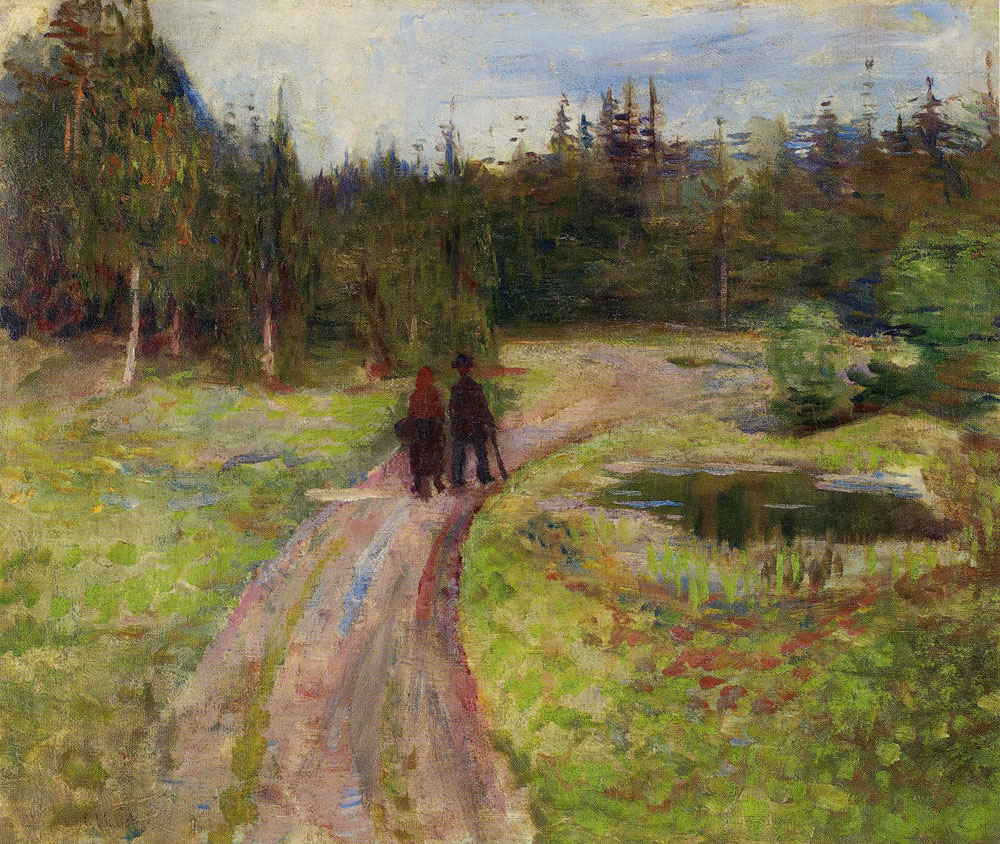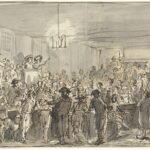Biography is inherently interesting because human beings are interesting. G. K. Chesterton, who knew and admired Fr. Vincent McNabb, understood the power of biography to instruct and inspire, writing full-length biographies of important religious and literary figures, as well as numerous biographical sketches. Biography of holy men and women is perhaps even more interesting since holy men and women are often as eccentric as they are virtuous. Such is the case with Fr. Vincent McNabb (1868-1943), a saintly man nevertheless characterized by quirks and extremes.
Andrew McNabb’s book, Walking with Father Vincent, is essentially a religious and very Catholic book. Mr. McNabb recognizes the central passion of Fr. Vincent: his deep love for Christ, expressed through a severe asceticism, a total devotion to traditional Catholic doctrine and social teaching, a commitment to love and serve the poor, a tireless effort to preach and teach the Gospel—all aimed at personal holiness in pursuit of heaven. Fr. Vincent evidently loved to repeat Peter’s tender words to Jesus (from John 21), “Lord, you know that I love you.” That love of Jesus lies at the center of Fr. Vincent’s motivation.
At another level Walking with Father Vincent shifts to spiritual autobiography as the author uses the story of his great granduncle’s life as a mirror to assess his own spiritual journey. This aspect of the book feels like a personal journal entry, at times like what we have come to expect of a blog or social media post. Fr. Vincent determined to shun materialism. He slept on the floor though he had a bed. He stood instead of using the chair in his room. He donned a single set of homemade clothes and owned little else but three books and a backpack. Most famously, Fr. Vincent tirelessly walked London as his primary mode of transportation. Religious rigorism like this invites the author to question and contrast his own spiritual choices; is he walking faithfully enough with Christ? For some readers, this may feel like too much information, but we must admit that this is an honest book, and humble. Mr. McNabb honestly accesses Fr. Vincent’s shortcomings, the shortcomings of the Catholic Church, and, perhaps to the chagrin of FPR readers, the shortcomings of Fr. Vincent’s Distributist ideals.
The story of Fr. Vincent McNabb is worth telling. He is a courageous, even heroic figure. Chesterton famously said of him, “Nobody who ever met or saw or heard Father McNabb has ever forgotten him.” And like Chesterton, Fr. McNabb’s sharp mind included a good sense of humor.
One wishes, however, that the book were better written. While themes recur giving the book a semblance of unity, little to no organization holds the book together. Mr. McNabb does confess himself a “creative ambler” as an author, yet topics begin, stop, and recur without rhyme or reason. Poor grammar, usage, syntax, and sentence structure make reading difficult at times. And of the 174 pages in the book, I conservatively estimate that 45 pages are comprised of block quotes—some more than a page long—from the two main biographical accounts of Fr. McNabb written in the 1950s. Few readers will be patient and longsuffering enough, however, to catch the glimpses the book offers of a beautiful, fascinating, and devout life.
Image credit: “Two People on the Way to the Forest” via Wikimedia Commons





